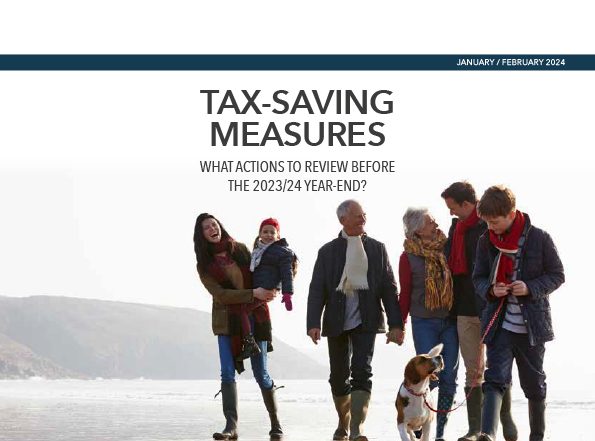Sales of annuities have reached their highest level since 2014, surging 22% during the first three months of 2023 according to data from the Association of British Insurers (ABI), as more retirees look to lock-in deals with attractive rates.
On the back of rising interest rates, the average annual annuity income has risen by more than £1,000 over the past 12 months, giving retirees who convert their pension pots into annuities a significant chunk of extra income.
Making the most of rising rates, people bought 16,256 annuities between January to March 2023, totalling £1.2 billion. This is the highest value since 2015 when pensions freedoms were introduced which gave people more flexibility over how to access their retirement savings.

Retirees have been taking advantage of these freedoms by shopping around for the best annuity deal. More than 10,000 people bought an annuity from a different provider to their pension savings provider, the ABI says, making up 64% of sales and totalling £847 million. In comparison, only 55% of sales were made by a different provider in the same period in 2022.
It’s also important to note that once you have purchased an annuity, that decision is locked in, so it is essential you shop around. Data from Hargreaves Lansdown shows the average annual annuity income stands at £6,782, up £1,091 from May 2022.
Currently, the Bank of England base rate is sitting at 4.5%; experts predict rates could rise further, which could lift annuity rates further. With rates rising 19% over the past year, according to data, the question now is whether now is a good time to buy one. We look at how annuities work and explain everything you need to know.
What is an Annuity?
An annuity is an insurance product that pays a guaranteed income for life in exchange for your pension pot. When you retire, you can choose to swap your nest egg for an annuity, or keep the pension as it is and take cash from it when you need – this is known as drawdown.
There are different types of annuities:
- An enhanced annuity – this pays a higher amount if you are ill or a smoker, factors which the insurer believes will affect your life expectancy
- An index-linked annuity – this is linked to inflation
- A “joint life” annuity – this pays an income to a spouse when you die.
- fixed-term annuities – pay an income for a fixed period, say ten years, rather than for your whole life.
Why are Annuity Rates rising?
Annuity rates are linked to government bond (gilt) yields, which soared last year, particularly following the mini-Budget in September. Bond yields have stabilised since Jeremy Hunt’s Autumn Budget.
Back in January 2022, the 15-year gilt yield was around 1.15%. It reached 3.5% in mid-September, and following the mini-Budget shot up to nearly 5% before the Bank’s emergency gilt purchases eased it back down. Currently, it’s around 4%.
For many years, the incomes available from annuities were low but over the past year there has been a revival in rates, partly because of increased interest rates. This means more people are considering them as part of their retirement plan.
The increase in annuity rates is arguably one silver lining at a time when homeowners and first-time buyers are worried about mortgage rates, and households around the country are feeling the squeeze from the cost of living crisis.
Annuities have previously been out of favour among retirees, with just 10% of pension savings used to buy an annuity in the 2020-2021 tax year. Pension drawdown is typically seen as more flexible, and better value for most retirees.
But experts say annuities could be poised for a comeback following the rate rises, which will give retirees an income boost. Annuities are an attractive option for those who prefer the security of the guaranteed income they provide.
Those looking to retire may be surprised to find annuity rates have improved, so those who decide to annuitise could be hundreds of pounds better off than if they retired at the start of 2022. While there are no guarantees the Bank of England will choose to hike rates when it next meets, if it does opt to raise rates it will be a welcome boost for those shopping around for an annuity.
Is an Annuity the right option for me?
If you decide to buy an annuity, it is worth noting that this decision is irreversible and therefore it is important to take the pros and cons of buying an annuity into careful consideration.
Here are some things to consider:
- You don’t have to use all of your pension pot to buy an annuity. You could use part of your pension, and access the remainder of the cash via drawdown, which can give you more flexibility over how you take income from your pot.
- You can choose what age to buy one. You may prefer to use drawdown to begin with, and buy an annuity later. It’s worth noting that the older you are, the better the annuity rate.
- You can continue to pay into your pension pot after you’ve bought an annuity. But remember, the usual tax rules apply; most savers can contribute up to £60,000 each tax year (known as the annual allowance) and benefit from tax relief.
- Annuity income is taxable, so it may affect any potential income-tax bill.
- If you’re unsure about your options, speak to a financial adviser first. The wrong decision could end up being costly.
Despite an improvement to the average annual annuity income, retirees may well opt for drawdown due to the flexibility. But should someone’s circumstances change, whether due to a deterioration in health or a change in attitude to risk, an annuity may be a suitable choice providing a guaranteed income during retirement, but this would depend on future annuity rate pricing.
Grosvenor Wealth Management are here to help
For many people, buying retirement income could be one of the largest and most important purchases they ever make, so they should not accept the first deal on offer from their own pension provider.
Our team of financial planners are committed to helping people discover that their money can do more. We can help you see that your vision for the future is easier than you think. Please contact us and talk to one of our advisers about how we can help you.
PLEASE NOTE: Grosvenor Wealth Management Ltd is authorised and regulated by the Financial Conduct Authority. The Financial Conduct Authority do not regulate tax planning or cash flow planning. The value of investment can go down as well as up and you may not get back the original amount you invested. Tax treatment is dependent on individual circumstances and may be subject to change.
Contact Us Form
Please complete this form if you wish to send us your questions or if you would like to request a call back.
We look forward to speaking with you.
Recent GWM articles that may be of interest
BALANCING PROFIT AND PLANET
STRIVING TO USE IMPACT TO BOOST INVESTMENT RETURNS ESG (Environmental, Social and Governance) investing, a [...]
JOURNEY TO MONETARY AUTONOMY
OPTIMISING YOUR FINANCES AND FORMULATING AN ALL-ENCOMPASSING WEALTH PLAN FOR THE FUTURE Everyone is entitled [...]
‘TIME IN THE MARKET’, NOT ‘TIMING THE MARKET’
In the investing world, the allure of quick profits and instant gratification often tempts some [...]
Smart Money January/February 2024
TAX-SAVING MEASURES WHAT ACTIONS TO REVIEW BEFORE THE 2023/24 YEAR-END? Welcome to the January/February 2024 [...]
Should I combine my pensions into one pot?
Combining your pensions could help you save money and keep track of your finances more [...]
A crucial decade: in your 50s
Maximising your earnings or laying down a robust financial plan As you sail into [...]







